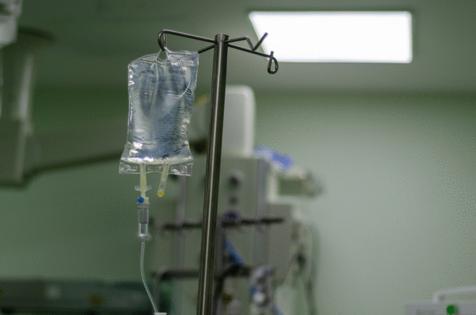Colorado hospitals take steps to conserve IV fluids during hurricane-induced shortage
Published in Weather News
DENVER — Last month’s East Coast hurricane could mean hospitals in Colorado will need to urge patients to try water or electrolyte drinks before using an IV line to keep them hydrated.
Hurricane Helene flooded and severely damaged a plant in North Carolina owned by Baxter International. The company manufactures about 1.5 million bags of fluids for hydrating patients intravenously each day, supplying about 60% of the U.S. market, according to Becker’s Hospital Review. The company also makes fluids used in dialysis.
The plant’s shutdown created a nationwide shortage almost immediately. On Monday, the American Hospital Association asked the Biden administration to declare the situation a national emergency and to invoke the Defense Production Act, which allows the president to direct businesses to prioritize certain items considered vital for national defense.
Two health systems in Minnesota reported they had rescheduled some non-emergency surgeries to conserve fluids, while hospitals on both coasts said they were taking other measures to reduce wasted bags of fluid.
Colorado hospital systems said they haven’t had to cancel procedures, but they are taking steps to conserve fluids.
UCHealth is using smaller bags when patients don’t need much hydration, offering fluids by mouth if the patients can safely drink and not hooking up an IV bag as a precaution if providers don’t know that a patient will need one, spokesman Dan Weaver said.
“These are simple changes that can help conserve supplies without impacting patient care,” he said.
The two halves of the former Centura Health, CommonSpirit Health and AdventHealth, said they use a different supplier, who wasn’t hit by the hurricane. AdventHealth added that it’s working with its suppliers to ensure it gets the usual amount.
“While we do not anticipate any disruptions to our solutions, saline or other products, we are advising our facilities to use resources conservatively as a precautionary measure. Our supply chain teams are maintaining regular communication to ensure we have the necessary supplies on hand,” spokeswoman Rachel Robinson said in a statement.
HealthOne said it wasn’t having any supply problems, but would monitor the situation. Intermountain Health said it has enough in its stockpile to meet current needs, but is working on conserving fluid bags in case the disruption is prolonged. Denver Health also said it was taking steps to conserve fluids that would have “minimal” impacts on patients, but didn’t specify them.
No one knows how long the shortage may last. On Wednesday, Baxter posted an update saying that customers could receive up to 60% of their normal order volume for the time being, and might receive a higher percentage in November. Earlier in the week, the company said it had installed a temporary bridge to its western North Carolina facility, allowing the clean-up to progress.
Two smaller suppliers announced they would increase production, but they likely won’t be able to make up the difference in the short term, according to NBC News. Overseas markets also don’t have much spare capacity, meaning importation isn’t a large-scale solution, though Baxter said its foreign plants are working to increase production.
_____
©2024 MediaNews Group, Inc. Visit at denverpost.com. Distributed by Tribune Content Agency, LLC.







Comments